Sometimes things go out of hand and we should just patiently wait it out (or should we?).

Here’s how long a fish can live without a filter running in its aquarium:
Pet fish will, typically, survive for 3 to 7 days if no filter is working in their tank. This is generally the time it takes for the water to become foul due to rising ammonia levels or lack of oxygenation.
At that point, the fish start to suffocate because of gill damage and the low oxygen levels.
What affects how long a fish can live without a filter?
Aquarium filtration can be performed in three ways:
- Biological;
- Chemical;
- Mechanical.
Biological filtration involves fostering an environment that is conducive to a beneficial bacterial colony that can process ammonia to nitrite and eventually, nitrate through the Nitrogen cycle. Chemical filtration utilizes carbon or other chemical resins to remove toxins from aquarium water.
Activated carbon is a particularly common form of chemical aquarium filtration.
Mechanical filtration pushes water through a filter media to strain particles and other free-floating debris out of the water. The best aquarium filters you can get utilize all three filtration methods to keep aquariums healthy by removing waste, aerating the water, and providing a habitable environment for beneficial bacteria to breed and grow during the cycling process.
Filters are absolutely necessary for aquariums, even if it’s just in a betta tank. With that being said, fish can go for short periods of time without a filter.
The time a fish can survive in an unfiltered aquarium depends on several factors.
- The species of fish. Certain hardy fish will last much longer without filtration than more fragile species. Goldfish, for example, are incredibly messy for their size, producing massive amounts of ammonia compared to similarly sized fish.
This means that without a filter, they will pollute their tank much quicker, becoming sick in the process. Bettas, gourami fish, and other “labyrinth” fish, on the other hand, can breathe air from the water’s surface, allowing them to tolerate environments without a filter much better. Other fish, like the mudskipper, can pump ammonia out of their bodies on command.
- Water temperature. Because cold water retains more oxygen than warm water, coldwater aquariums often last longer than tropical setups without a filter
(unless you stock your aquarium with a high-waste producer like goldfish).
- Water surface movement. Filters often aerate aquariums thanks to the flow they produce.
A heavily planted aquarium will last longer without a filter than one with no vegetation.
Well, the bigger the aquarium, the more water is in it.
The more water volume, the more diluted pollutants become, making them more tolerable for fish.
If you have a large tank that’s stocked relatively low, the fish inside will last longer without filtration than an aquarium at maximum capacity.
Disclaimer because I know the more experienced aquarists will be quick to point this out: Setting up a functional unfiltered aquarium is possible.
It takes careful planning ahead and deep knowledge of how a closed ecosystem works.
However, I highly doubt someone reading this article is not a beginner in the hobby, relatively speaking.
Anyway…
What to do to support pet fish when out of a filter or an air pump?
The major threat to fish in an unfiltered aquarium is suffocation.
Fish use their gills to absorb oxygen, among other important things. When the filter is not cycling water through its media with nitrifying bacteria, ammonia may rise, damaging the fish’s gills.
On top of that, if the filter is not moving the water’s surface, the oxygen levels in the aquarium drop, increasing the chance of your fish suffocating and dying. With that in mind, it is possible to keep fish alive without a filter or an air pump, but it does become significantly more time-consuming to care for them.
If your filter stop working, here’s what you can do to keep your tank alive and well:
What to do when your power or canister filter goes out:
If you have a power or canister filter you should remove its filter media and place it directly into the fish tank. That filter media houses the bulk of your nitrifying bacteria culture which are responsible for maintaining stable water parameters in your aquarium.
So by moving it out into the open where water will naturally flow around it, it can continue to process pollutants to reduce the risk of ammonia or nitrite poisoning.
What to do when your sponge filter and air pump go out:
Sponge filters with an air pump are popular because they are efficient and easy to use.
They’re efficient, reliable, and easy to use.
Many of these filters are small enough to be used in a bowl, provided the fish within it aren’t overcrowding the water.
If your sponge filter stops working or you lose power, leave the sponge part underwater to keep the beneficial bacteria working in the tank.
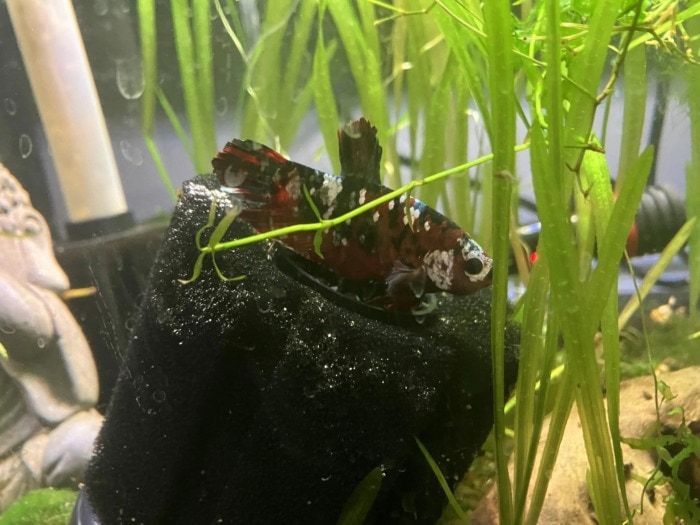
by PompyPom
By doing so you will keep the beneficial bacteria working in the tank.
However, since the air pump is no longer moving the water’s surface, manually stir the water’s surface to promote oxygenation.
In that case, you can manually stir the surface of the water to promote its oxygenation.
Author’s note: Goldfish should never be kept in small bowls!
Adjusting feeding schedule:
For the time that your filter is not working, another step to protect your fish that you can take is to temporarily feed them less. By feeding them less, they produce less waste, reducing ammonia levels in the tank.
Fish can generally go several days without food without a problem. Along a similar line, remember to remove any uneaten food promptly when your filter is out to further reduce potential ammonia spikes.
This step may not be necessary if you’ve put the filter’s media directly inside the tank as I advised you to in the previous steps. Also be careful with this if you’re not confident in your aquarium’s biological filtration, as starved fish are typically more sensitive to ammonia spikes.
Is your water filter broken, too noisy, or was it a power outage?
Fixing a filter that has stopped working
If you’ve noticed your filter has stopped working, you can do some basic troubleshooting before rushing out to replace it.
As long as you follow the guidelines above, your fish should be okay for the time it takes to complete this process. I discuss troubleshooting filters in more detail in this article.
But here’s the gist of it:
1. Check the motor.
Your motor should emit a faint hum while running.
If it’s not when the filter’s supposedly on, either the motor is broken, a cable is unplugged, or the wires could be damaged.
I’ve done this before! If you do hear some noise, it could be clogged somewhere, especially if the water in the tank is still.
If the motor is out, you will either need to replace it or the entire filter.
2. Listen for strange sounds.
If the noise coming from your filter sounds like grinding or rattling, there’s a good chance you have a clog somewhere.
Grinding is typically caused by particles gunking up the impeller.
If you hear rattling, the impeller is likely shaking back and forth and needs tightening.
3. Check for a clog.
Clogs are probably the most common cause of filter malfunctions that I’ve encountered.
It makes sense – aquariums aren’t exactly sterile environments.
Thankfully, this is usually one of the easiest fixes.
Most blockages happen in the impeller, and all you need to do is clean it out.
4. Prime the filter.
It’s all too easy to overlook priming a filter and then assuming that it doesn’t work.
Priming is the process of replacing the air inside the filter with water.
This often needs to be done manually, by filling the filter cartridge with aquarium water and then letting it run.
Some of you might also have self-priming or no-priming filters that will do this for you.
Keeping aquarium fish alive during power outages
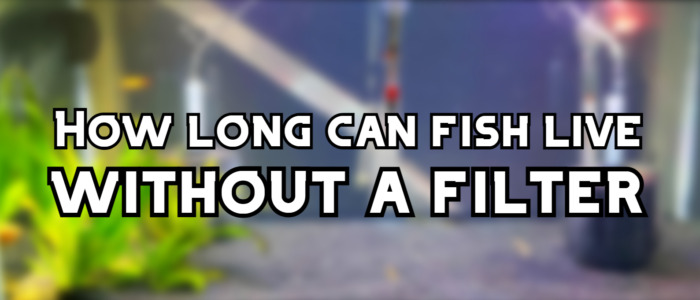
If your power goes out, the more critical risk to your fish is the change in temperature caused by the heater being out.
If your power goes out and you expect it to be for an extended period of time, there are a few things you can do to retain heat, but they require you to act quickly.
When asked, I usually tell people to wrap up their aquarium as much as possible to insulate it.
Glass doesn’t hold heat very well, so aquariums can rapidly lose heat without their heaters.
However, by wrapping the tank with a blanket or blankets, you can keep the heat in.
Author’s note: Don’t forget to unplug your lighting systems before wrapping your tank so they don’t automatically turn on which poses a fire risk!
Another common solution that I don’t recommend as much is to warm water on your stove, assuming you have a gas one, and then place it into a jug or plastic bag to float in the tank.
However, it’s very easy to accidentally overheat the water.
Causing the water temperature in your aquarium to rise too high is just as dangerous as letting it get too low.
Turning a noisy water filter off at night
You should never turn your fish tank’s filter off at night. While your fish can and will likely survive overnight – especially if you have something hardy like a Betta – a fish tank filter does always need to be on for best results. In my experience, the best thing you can do is either keep the aquarium out of your bedroom if it’s too loud or choose a filter designed to be quiet, like the ones I discuss here.

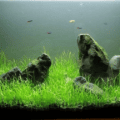
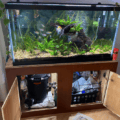
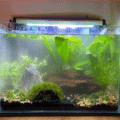
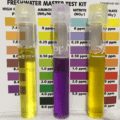
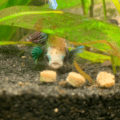
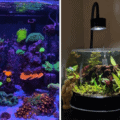
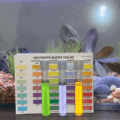


1 thought on “How Long Can a Fish Live Without a Working Filter?”